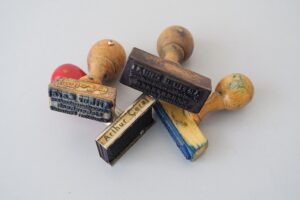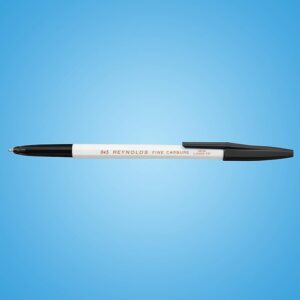We like to think wars and conflict are the result of human beings giving in to their baser instincts, but read a bit of history and you’ll find that isn’t strictly true. Wars most often happen because someone, and more often several someone’s benefit from it. Wars are profitable.
Ignoring the military-industrial complex and all the lofty commercial conspiracies which are well above our everyday person pay-grade, it has never taken too long for regular business to jump in on the war bandwagon, because war can be good business and patriotism is a guaranteed pitch.
However, whether we like it or not, war has also resulted in the development and invention of many things that following times take for granted. World War 1, for example, led to the invention of everything from zippers and the sanitary napkins, to drones and the trench coat. It even led to that half-a-century heyday of the fountain pen.
During The Great War, print advertising reached its peak, by many measures. Before the widespread use of any other broadcast medium, print was still king and WW1 birthed some of the more innovative, opportunistic and far reaching changes in advertising which made it the all-encompassing beast that we know today.
The ’emotional appeal’ was first used en masse for patriotism and supporting soldiers at the front. There had never been such a large deployment of young soldiers in history. Trench warfare was new. Chemical warfare was new. Tanks, bombers, machine guns and other war machines were new. The Great War was unprecedented, unrelenting, and unimaginably inhuman (which we’ll come back to later). This meant that it needed even more spin put on it than any disaster which had come before.
The War was used to sell everything from sauces to send to your loved one in the trenches and gramophones to trench coats and other protective clothing. It was a war of correspondence and correspondents. There were a rash of newspapers who had risen with their war reporting, and the nature of trench warfare meant enough miserable down-time between skirmishes that (well-censored) correspondence between soldiers and the people back home became a major feature of the conflict.
Fountain Pens and Ink Tablets Designed for War Correspondence
This opportunity resulted in an advertising arms race between fountain pen manufacturers. Swan, Parker, Waterman and several brands which have been lost to time, feature heavily in the crisp and illustrated newspaper ads of the time. It started with the emotional appeal of giving your soldier on the front the best implement to write home with, the most dependable, the coolest, in some sense.

As the war progressed and the dark realities of the situation sunk in, you can see more practical appeals emerging. The first fountain pens with built-in fillers were invented and promoted to make it easier for soldiers to use their pens in the trenches. Very soon, sending ink bottles was banned and so new innovations arose. Ink Tablet Pens were developed. Mix a tablet of dry ink (some of them stored in a small compartment built-into the pen) with water to get instant ink on the front. No broken bottles, no unnecessary leaks. The comfort of writing home in the squalor of war trenches.

Image – https://parkersheaffer.com/parker-trench-pen/

When it was all over, 8.5 million soldiers had died and up to twice as many civilian casualties. We’ll never know because there are no records to count. Most of the soldiers were too young and if they weren’t already from the poorer sections of society, many returned to a life of poverty.
It was a turning point in the history of the world and in some ways cemented many of the staples we now consider normal. Most of the soldiers on the front couldn’t afford a gramophone, or even the fountain pens so widely advertised. So did the pen really turn out to be mightier than the machine gun? No.
But we like to believe there is a more positive postscript to this. There is a popular urban myth of the choice of writing instruments of the US space program versus the Russian one during the Cold War space race. That story is actually untrue. However, this was true during The Great War. While fountain pens were a luxury for most, millions of young men, who were to become a lost generation, did in fact write home. Their letters are an inextricable part of our literature and history. They give us a scribbled, blood-stained cautionary tale of what terrible things we can do, and what wonderful things we can be.
It turns out, it was the Pencil which was mightier than the machine gun.
Read other interesting stories of stationery and its origin on the links below,
- If you love pens and fountain pens check out these 27 wise, witty and motivational pen quotes – https://inkymemo.com/best-pen-quotes/
- Read some of our favourite stationery books by fellow stationery enthusiasts – https://inkymemo.com/5-must-read-books-on-stationery/



